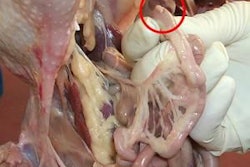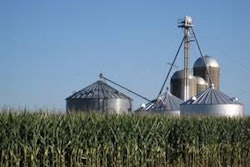Chad Gregory, senior vice president, United Egg Producers, addressed a capacity audience at the 2009 Midwest Poultry Federation Convention on the implications of California Proposition 2.
The Humane Society of the United States which has an annual budget of $120 million has successfully won ballot initiatives in Florida and Arizona (confined sows and veal calves) and most recently in California which restricts housing of hens in cages.
It is possible that initiatives will be introduced sequentially in as many as 24 states. The HSUS has adopted this approach having failed to advance their vegan agenda through introducing bills into the legislatures of 10 states. Currently HSUS claims to have 10 million members with at least 30,000 in each congressional district of the U.S. and possesses exceptional experience and ability in framing public opinion. Their stated intentions are to ban all slaughter of livestock in the U.S., to stop all hunting and fishing, and ban the use of animals in research or in public exhibition.
The anti-ballot coalition expended $7 million to oppose Proposition 2 and gained the support of Governor Schwarzenegger, 28 major daily newspapers in California and numerous trade unions, professional groups and representatives of ethnic associations. Despite the concerted attempts of the industry to present their case, the Proposition was adopted by a margin of 62% to 38% demonstrating the fact that a selectively worded ballot proposition, promoted by manipulating facts and distortion will inevitably result in adoption by an uninformed electorate voting on emotion and perception.
Call for action
The theme of the presentation by Gregory was the need for concern leading to unified and concerted action. If cages are banned in the U.S. it will be necessary to place at least 15 million more hens to produce the current number of eggs consumed, approximately 700,000 additional acres of corn and soybean production would be required based on inferior feed conversion efficiency.
Expenditure of over $8 billion would be needed for additional land, buildings and equipment to sustain current levels of production. It is inevitable that without cages, the U.S. would become reliant on imported eggs which would in itself impose considerations of food safety and security and result in loss of domestic jobs.
During the past few months, UEP has been active in reaching out to all segments of agriculture and representatives of consumer groups to acquaint them with the danger of unrestrained and unopposed activities by extremist groups committed to elimination of intensive animal agriculture.

















